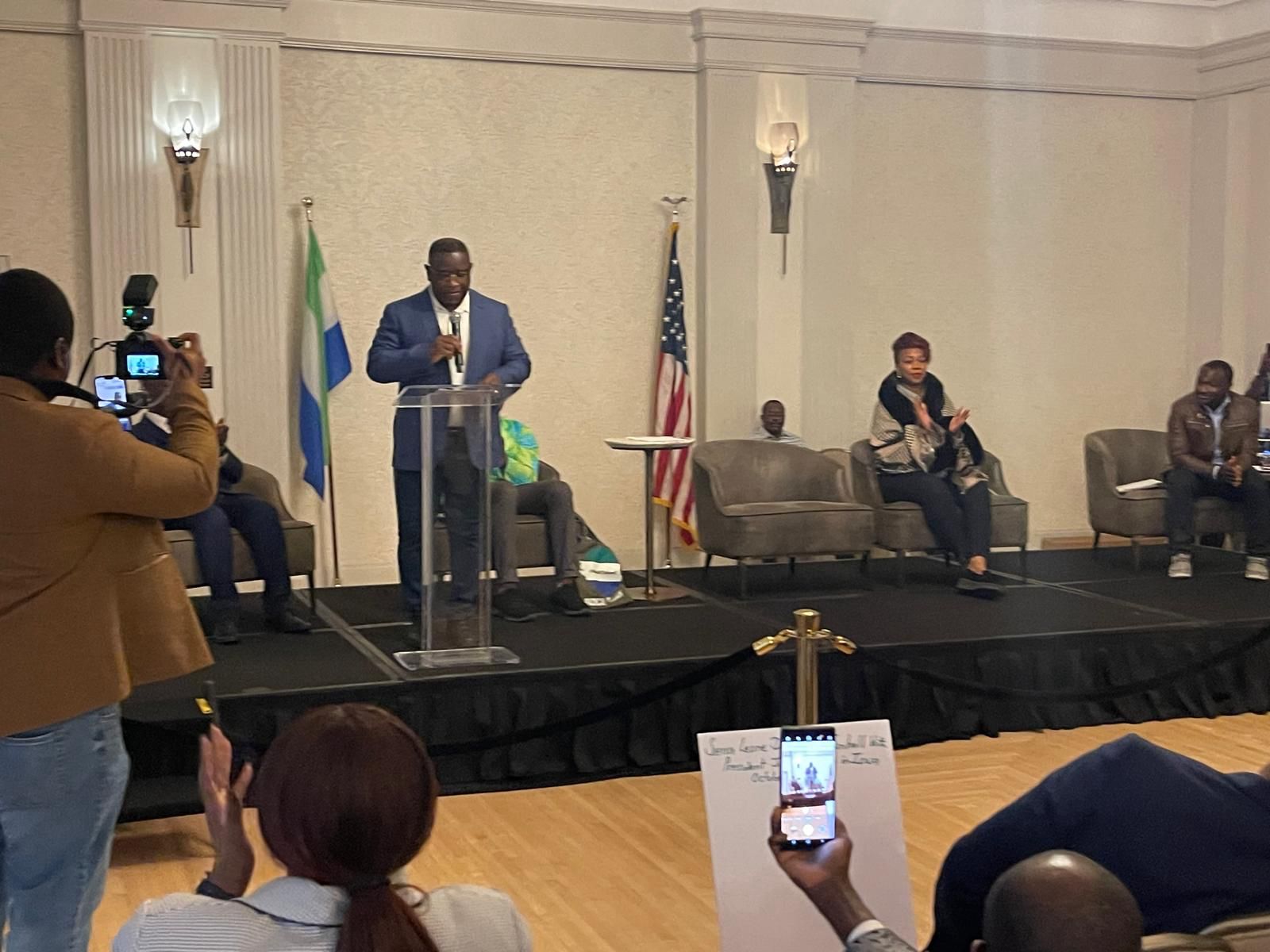By: Tommy Sidikie, Reporter
His Excellency Rtd Brigadier Julius Maada Bio, President of the Republic of Sierra Leone, emphasized his commitment to human capital development as his primary legacy during a Fireside Chat with Dr. Akinwumi A. Adesina, President of the African Development Bank, held on November 10, 2024, at the Event Center in Des Moines, Iowa. The discussion covered various topics, including food security.
When asked how he wished to be remembered, President Bio stated that his administration’s focus on human capital development includes ensuring universal access to education, recognizing food as a moral right, and improving health services. He reflected on his educational journey, crediting his late mother as a key motivator for his success.
“I want to be remembered as a Human Capitalist. My government is dedicated to providing fit-for-purpose education, viewing the human being as the most valuable resource in our country,” President Bio declared. He highlighted the Free Quality Education initiative, which has led to increased enrollment in schools and universities. This program includes the distribution of free textbooks, a school feeding initiative, transportation support, and free tuition for girls studying science at the university level, along with provisions for sanitary pads to help keep girls in school.
President Bio stressed that equitable access to education is crucial for harnessing the potential of the population. He also addressed the importance of food security, stating, “It is impossible to impart knowledge on an empty stomach.” He expressed his commitment to mobilizing international support to enhance the country’s food systems, inviting partners to collaborate on food security initiatives.
“We are an ambitious country seeking to attract investors to create jobs for our youth through agriculture, which will foster a peaceful society. We aim to transition from subsistence farming to mechanized agriculture and add value to our raw materials. My government is committed to modernizing agriculture in Sierra Leone,” he assured attendees, encouraging development partners and the private sector to explore the potential of agriculture, particularly through the creation of a special agro-processing zone designed to attract investment.
In alignment with his desire to connect with the diaspora, President Bio participated in a Town Hall meeting hosted by Sierra Leone’s Ambassador to the United States, Sidique Abou-Bakarr Wai, at the Fort Des Moines Hotel. During this meeting, he reminded attendees of the progress his government has made in elevating the country’s international standing. He noted that Sierra Leone’s return to the UN Security Council is a testament to hard work and adherence to democratic principles.
Additionally, he highlighted the recent success in securing a Millennium Challenge Corporation (MCC) Compact as evidence of effective leadership. President Bio reported a 60% reduction in mortality rates under his administration, alongside significant legal reforms, including the abolition of the death penalty and the repeal of the seditious libel law.
In closing, President Bio urged Sierra Leoneans in the diaspora to support their home country as it navigates the challenges posed by advancements in artificial intelligence. “I know it’s difficult to return home, but your energies are needed to transform our country. We are ready to get you started,” he concluded.






